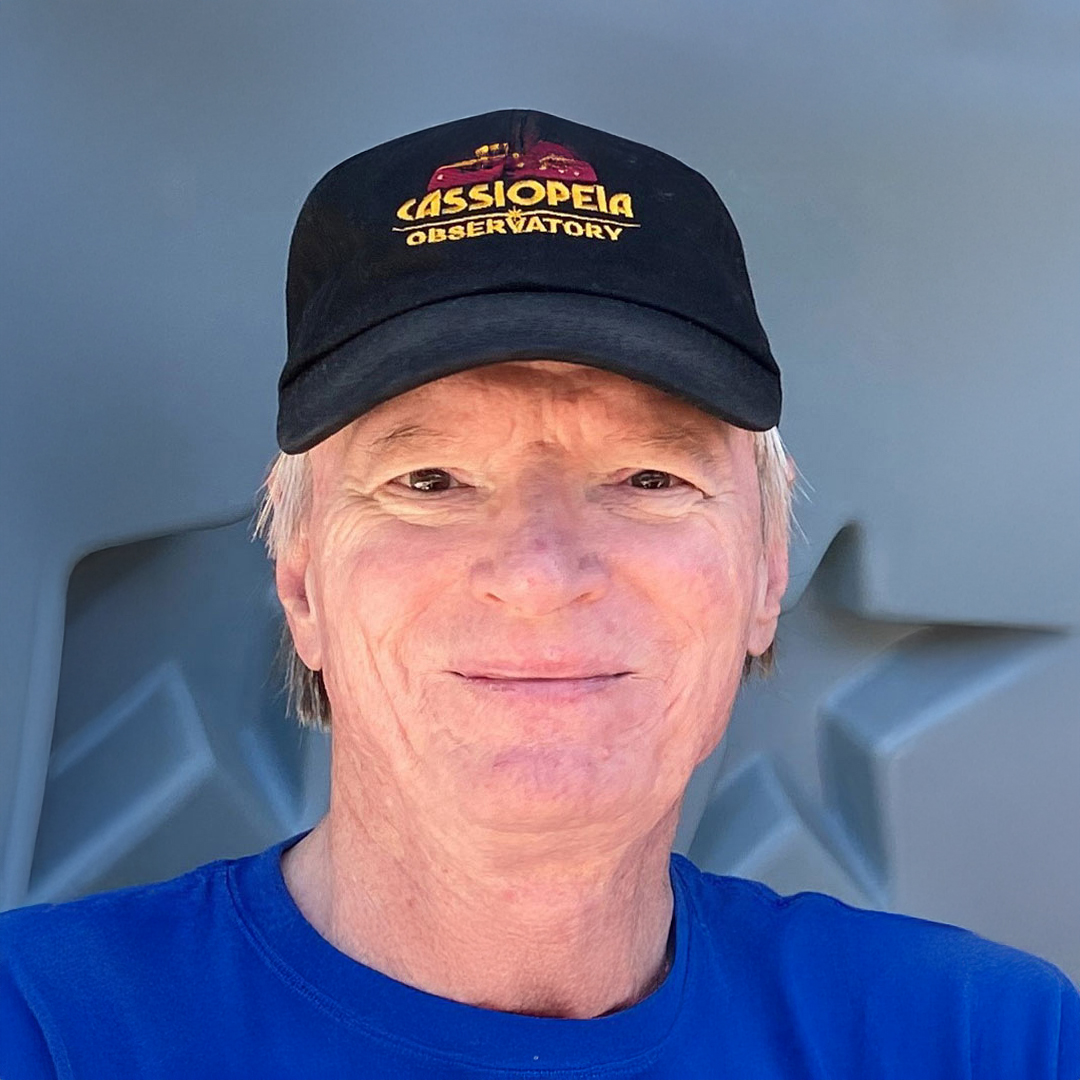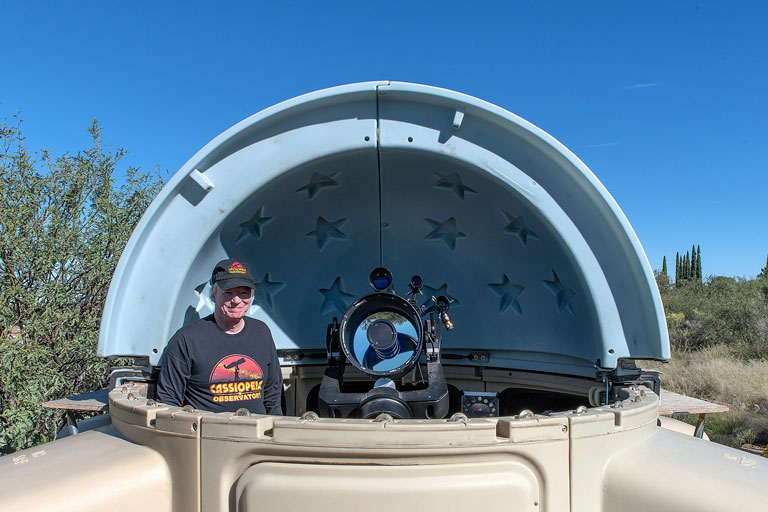As children, we are told to “reach for the stars,” but for Mike Weasner, BS’70, reaching wasn't enough. He's spent his life studying them.
Weasner’s love of astronomy started when he was six years old. One starry night, his older brother, Paul, a math major with an astronomy minor at IU, took him into their backyard to show him the Cassiopeia constellation. “I remember Paul pointed up and showed me the stars that formed my initials,” said Weasner. “I thought to myself, I'm up in the sky! That's kinda cool!”
That childhood fascination later guided him to Indiana University, where he gained an invaluable understanding of our world, humanity, and the value of giving back through education.
Lifting off at IU
While earning his B.S. in Astrophysics at Indiana University, Weasner met his first mentor, Delores Owings, the director of the Asteroid Program where he worked. “She taught me not only about astronomy but the value of patience while facing tough challenges.”
Owings taught Weasner to stay persistent and focused no matter what happens in life. Like the stars, you never know how things will eventually align. “All of my IU professors were excellent educators and even better human beings,” said Weasner. “I support IU to help ensure that it continues being not only a resource for learning but a place that helps students succeed in life.”
Weasner’s IU education helped him make the most of the opportunities that came his way in the Reserve Officer Training Corps (ROTC), as a manager in aerospace companies, and his post-retirement astronomy career. “If you had asked me in the ‘60s where I would be, I wouldn't have guessed it would've been what has happened to me,” he said, “The sky is the limit for these IU students.”
Making an impact
In 2002, Jeff Stuckey, the executive director of advancement at the College of Arts and Sciences, invited Weasner and his wife Laurraine to visit Kitt Peak National Observatory in Arizona, which turned out to be a pivotal moment. “That was not only a thrilling experience; it provided me with new insights into what I could do for the IU astronomy department.”
And that’s exactly what he did, becoming a benefactor to the Department of Astronomy and a College of Arts & Sciences Astronomy board member. As part of that work, he established the Michael L. Weasner and R-Laurraine Tutihasi Astronomy Endowment and the Michael L. Weasner and R-Laurraine Tutihasi Fellowship.
Several years after his retirement, Weasner and his wife decided to establish a bequest[1], a testament to the value they place on giving back to Weasner’s alma mater. They hope that their support will pave the way for future generations to achieve the same level of success that IU has afforded them.
Paving the way
Weasner sees paying it forward as a responsibility since someone did the same for him. “I might not ever know who that person is, but they created opportunities for people like me,” he said. Thanks to those donors, he is now able to help future generations by making a planned gift. “Anybody can succeed when the doors are opened for them with support.”
Weasner's life is a testament to the phrase “the sky’s the limit.” He attributes his many successes, like his Emmy-nominated biographical story, his autobiography. Finding my Way to the Stars, his IU Bicentennial award in 2019, and authoring Using the Meade ETX, to Indiana University.
“There is no doubt in my mind that Indiana University is responsible for the amazing opportunities and successes I’ve had over many decades,” said Weasner, “My brother Paul would be proud that his love of IU and astronomy started me on my path.”
To learn how you can join Mike Weasner in supporting educational opportunities through your own planned gift, please contact the Office of Gift Planning Services at 800-558-8311 or giftplan@iu.edu. We would be honored to assist you.
Endnotes
- A bequest is a gift made through a person’s estate plans, typically outlined in their will or living trust. It involves transferring cash, securities, real estate, or other property to a designated beneficiary, such as a IU Foundation, upon the donor's death. Bequests allow donors to retain control of their assets during their lifetime, offer flexibility to modify their plans, and can provide significant benefits, such as supporting causes they care about and potentially reducing estate taxes.[↵]



